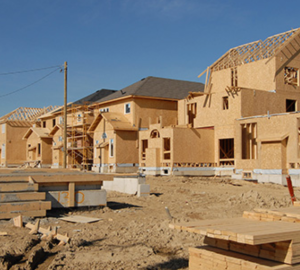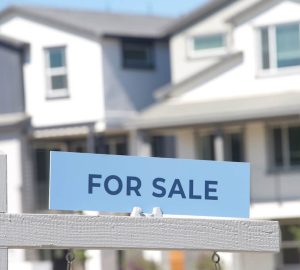Navigating the home-buying process can be complex under any circumstances, but when children are involved, the decision-making process becomes even more challenging. In addition to searching for a home with enough space for your family, you must also take into account the availability of recreational facilities like parks and the quality of local schools. The presence of excellent schools often leads to higher housing prices. For instance, Miami-Dade County is renowned for its magnet schools, which are a significant consideration for family-oriented buyers, as noted by Filippo Incorvaia, CEO of FI Real Estate Brokerage LLC in Miami. It’s not uncommon to pay at least 20% more for a home in a well-regarded school district, according to Incorvaia.
However, it’s essential to weigh the advantages and disadvantages before making such a significant investment. Here are some factors to consider:
Access to Quality Education and Future Prospects
Purchasing a home in a top-performing school district can provide your children with an exceptional education and potentially pave the way for their future achievements. Roxann Taylor, a seasoned real estate professional and owner at Engel & Völkers Dallas Southlake, strongly advocates for investing in a home in a superior school district if it’s financially feasible. In Southlake, Texas, for example, the schools are not only academically outstanding but also offer a wide range of extracurricular activities and opportunities that can lead to college scholarships.
Comprehensive Learning and Support
In desirable school districts, the educational experience often extends beyond the classroom. Frances Lisner, a real estate salesperson at Daniel Gale Sotheby’s International Realty on Long Island, explains that investing in a home within such a district can result in lower student-to-teacher ratios and enhanced services for children with special educational needs.
Community of Education Enthusiasts
By choosing to live in a community with a strong emphasis on education, you’ll be surrounded by like-minded individuals who prioritize academic excellence. As Incorvaia suggests, there’s a synergy between the school system and the neighborhood, and opting for a well-performing school district typically means joining a neighborhood that values education and family life. This can foster a sense of belonging and provide a supportive environment for your children to grow and thrive.
In conclusion, while the decision to pay a premium for a home in a great school district ultimately depends on your financial situation and personal priorities, it’s clear that doing so can offer a range of benefits. These include access to high-quality education, opportunities for scholarships, and a community that shares your values and commitment to education. It’s important to carefully evaluate these factors and make an informed choice that aligns with your family’s long-term goals and well-being.
There’s a possibility that when opting for a home in a highly sought-after school district, you might end up paying more for a property that has less space or requires significant repairs. Taylor has observed clients willingly accepting homes in need of extensive renovation to secure a spot in prestigious school districts like Southlake.
Similarly, Lisner has noticed a surge in demand for properties in specific school districts, even when the homes themselves aren’t the largest or most modern. The reputation of a school district can significantly boost buyer interest, and as a result, some clients may need to compromise on the size of their home to live in their preferred school zone.
The Challenge of a Competitive Environment
While being in an acclaimed school district has its benefits, it can also present challenges. Your children may find it difficult to excel if they are surrounded by peers who are exceptionally academically driven. Lisner has encountered clients who deliberately avoid certain school districts due to the overly competitive environment, fearing the pressure to maintain academic excellence could be overwhelming for their children. Taylor concurs that living in a high-achieving school district may not be suitable for every child, especially if they are not naturally inclined to thrive in such an environment.
Alternatives to Traditional Public Schools
It’s important to remember that the majority of parents enroll their children in their local public schools, but there are other educational avenues available. These include public charter schools, magnet schools, private institutions, parochial schools, online academies, and homeschooling. According to EdChoice, a nonprofit advocating for educational options, 32 states and Washington, D.C., currently offer school choice programs, enabling families to use public funds for educational alternatives outside their local schools.
Evaluating Your Decision
There are both advantages and disadvantages to investing more in a home located in an exceptional school district. Reflect on your family’s priorities, understanding that there is no universally correct or incorrect choice.
If academic achievement is a high priority for you, it may be worth the extra expense to ensure access to high-quality education. Conversely, if your primary goal is to provide a comfortable and reasonably priced home, and you’re confident in your children’s ability to succeed in any educational setting, then perhaps it’s not necessary to strain your budget for a home in a more prestigious school district.
Taylor believes it’s worthwhile to invest more in a home to provide your children with opportunities they might not have access to elsewhere. However, your perspective might differ.
If you’re undecided, Incorvaia suggests considering a year-long rental in the district to ensure the neighborhood meets your expectations and you’re satisfied with the schooling. This can provide a stronger assurance when making the decision to invest more.
Lisner advises her clients to consider that it’s not always necessary to live in the most elite school district; surrounding districts may also offer excellent education. She also emphasizes that opting for a desirable school district usually entails a long-term commitment to higher property taxes.
However, you’re not necessarily locked into this choice forever. In Lisner’s experience, many individuals relocate once their children are no longer in school, as it no longer makes financial sense to remain in a high-tax area. If you’re considering a home in a top school district as an investment rather than a long-term residence, Lisner advises planning your exit strategy from the outset, just like a savvy investor.




